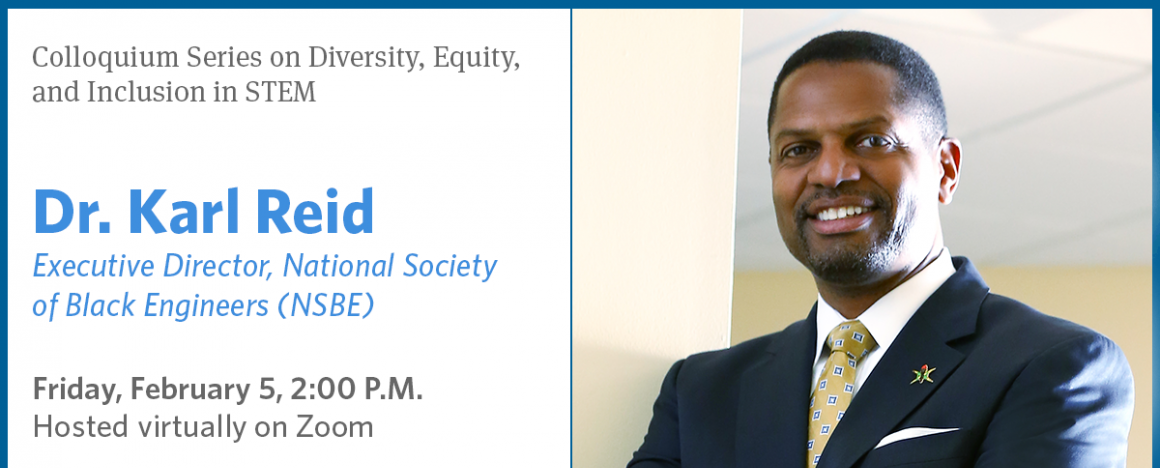Dr. Karl Reid - February 2021

The Case for Diversity and Inclusion, from an Engineer's Perspective
The United States and the world are in the midst of a watershed moment of racial reckoning. In the wake of global protests for racial justice, billions have been pledged and thousands of companies, universities, and associations have made commitments to dismantle systemic racism and work toward social justice. There's a reason. For universities to thrive, they must foster an inclusive climate, one in which every student, faculty, and staff member feels that they can bring their whole selves into the classroom, laboratory, and the workplace.
Engineers are astute at tackling complex problems. Who better, than, would be equipped to grapple with the complexity of increasing diversity, and fostering equity and inclusion in higher education, industry, and other domains at scale? This talk from Dr. Karl Reid of the National Society of Black Engineers will synthesize the latest research on diversity into a practical value proposition, through the lens of the engineer. He will make the case for why diversity and inclusion matter, and offer steps to creating more equitable and inclusive campuses and workplaces.
About Dr. Reid
For more than two decades, Dr. Karl W. Reid has been a leading advocate for increasing college access, opportunity, and success for low-income and minority youth. Dr. Reid was appointed executive director of the National Society of Black Engineers (NSBE) in 2014. He came to NSBE from the United Negro College Fund and from positions of progressive responsibility to increase diversity at the Massachusetts Institute of Technology (MIT). Dr. Reid holds a number of leadership positions in collective efforts dedicated to STEM and diversity, equity, and inclusion, including the DC STEM Council and advisory councils/cabinets at the University of Michigan and at Harvard University. He is also a founding member of the 50K Coalition, a national effort to produce 50,000 diverse engineering graduates annually by 2025.
Dr. Reid earned his undergraduate and master's degrees in materials science and engineering from MIT, and his Doctor of Education from Harvard University.